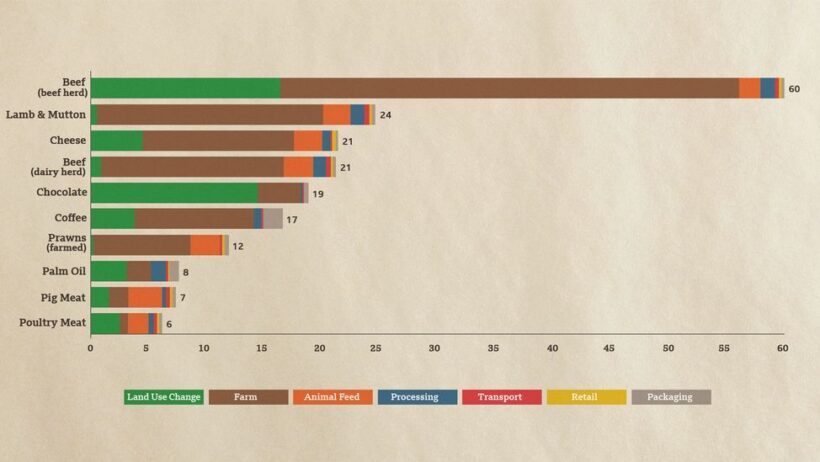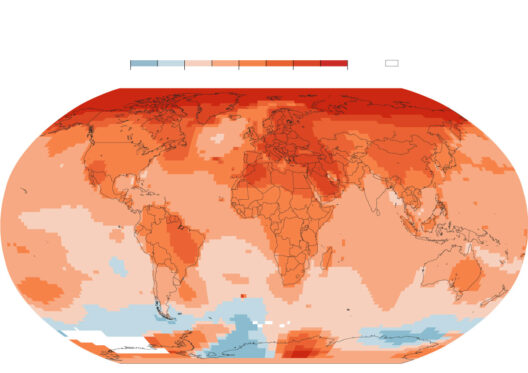In the face of escalating climate change, the conversation around dietary choices has gained momentum. The rising awareness about the environmental impact of food production, especially animal agriculture, invites an essential dialogue about the benefits of a plant-based diet. By reevaluating conventional food paradigms, we can foster a deeper understanding of how adopting veganism or vegetarianism can be a formidable weapon in the struggle against global warming.
The correlation between meat consumption and greenhouse gas emissions is both alarming and enlightening. Animal agriculture accounts for approximately 14.5% of global greenhouse gas emissions, a staggering figure given the environmental ramifications of these emissions. Methane, a potent greenhouse gas emitted during the digestion process of ruminants like cows and sheep, poses a significant threat to our climate. Moreover, land use for livestock farming leads to widespread deforestation, disrupting ecosystems and diminishing biodiversity. This is a vicious cycle; as forests are cleared, carbon that was previously stored in trees is released into the atmosphere, exacerbating climate change.
A shift to a plant-based diet represents an opportunity to mitigate these impacts substantially. Research indicates that if the global population eliminated meat and dairy from their diets, food-related emissions could be reduced by up to 70% by 2050. This is not merely a theoretical exercise; it presents a clear roadmap towards achieving the international climate goals outlined in the Paris Agreement. The promise of such a transformation is tantalizing, igniting curiosity about how individual choices can collectively engender monumental change.
Transitioning to plant-based eating patterns becomes even more compelling when one considers the benefits beyond greenhouse gas reduction. The cultivation of plant foods typically requires less land and water compared to animal farming. For instance, producing one kilogram of beef necessitates around 7,000 liters of water, while the water footprint for legumes is substantially lower. Thus, adopting a vegan diet not only conserves resources but also addresses the issues of water scarcity that many regions face today.
Further entrenching the benefits of plant-based diets is the broader ecological impact on habitat preservation. By reducing the demand for animal products, we can alleviate the pressure on ecosystems that are currently being converted into farmland. This transition is of paramount importance, as healthy ecosystems play a crucial role in sequestering carbon and regulating local climates. The preservation of these habitats is vital for maintaining biodiversity, which in itself is a cornerstone of resilient ecosystems that can better withstand the ravages of climate change.
However, the efficacy of a shift to plant-based eating goes beyond mere reduction of emissions and resource conservation. In scrutinizing our consumption patterns, we also engage in a crucial act of moral consideration. The ethical implications of animal agriculture—including concerns about animal welfare and the conditions in which livestock are raised—are essential facets of the conversation around dietary choices. By embracing veganism, individuals align their values of compassion and sustainability, creating a more cohesive rationale for their lifestyle choices.
But how can one embark on this journey? The transition to a vegan or vegetarian lifestyle need not be an overwhelming endeavor. Gradual adaptation strategies can make the switch more manageable. Initiatives such as “Meatless Mondays” or incorporating more plant-based meals into one’s week can help ease individuals into this new dietary framework. With the plethora of resources available—from cookbooks and meal plans to vegan blogs and social media communities—support systems abound for those looking to alter their eating habits.
Moreover, the surge of innovative plant-based products on the market today has made the transition feel less daunting. Many companies are now crafting plant-based alternatives that closely mimic the taste and texture of traditional animal products. This development not only caters to a wide variety of palates but also serves as a testament to the culinary versatility inherent in plant-based diets. From meat substitutes to dairy alternatives, these innovations can pique the curiosity of even the staunchest non-vegans.
As we strive for a sustainable future, it is imperative to recognize that the choices we make at the grocery store have far-reaching implications. Supporting local farmers who engage in sustainable practices can further amplify the positive impacts of a plant-based diet. By opting for seasonal fruits and vegetables, consumers can minimize their carbon footprint while bolstering local economies. This conscientious approach to food consumption encourages a paradigm shift, where purchasing decisions become acts of advocacy for the environment.
Additionally, educational institutions and governments play pivotal roles in fostering a culture that embraces plant-based living. By incorporating sustainable eating habits into school curricula or implementing policies that promote plant-based meals in public institutions, societies can cultivate a generation that prioritizes climate-friendly practices. This shift in focus can significantly influence public perception, weaving the values of sustainability and health into the very fabric of our communities.
Veganism is not merely a diet; it is a powerful movement advocating for our planet’s health and our own well-being. The synergistic relationship between plant-based diets and climate change mitigation extends beyond individual actions; it invites a collective response to a shared challenge. Through curiosity, education, and a commitment to sustainable living, we possess the agency to craft a future that honors and preserves the natural world. As we conclude this discussion, it is essential to reflect on the profound impact our plates can have on the planet, and to consider how each meal can contribute to a more sustainable and equitable world.





